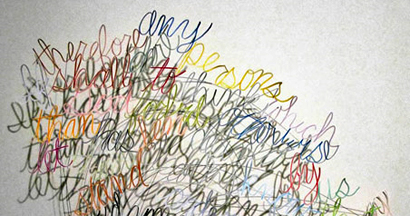The Journalist and the Music Fan

If you’re at all like me, you probably didn’t blink an eye when it was announced that the New York Times was going to host a stream of the National’s new album High Violet two and a half weeks before its official on-sale date. After all, this sort of “first listen” is the norm these days, with websites like NPR regularly offering up advance listens of full albums. Sure, the High Violet stream was paired with a thorough, insightful feature article about the band, but other than that nothing about the operation seemed noteworthy to me.
The Washington Post thought differently, putting together a news story about the Times’ feature suggesting that, “the move raises ethical issues about the relationship between the media and the subjects they cover.”
Normally, I’d just chalk up such an article to “inside baseball” – one newspaper taking a jab at another when it sees an opening, no matter how slight. After all, no money was exchanged between the Times and the National and the article makes it clear the decision by the band to offer the album for streaming came after the article was completed.
But the Post is right that there’s something notable going on here. In democraticizing discourse, the Internet is challenging traditional standards in both journalism and criticism of the arts. When there are bloggers that are as popular as long-time icons of the field, it calls into question long-held tenants of the industry. For example, where does the music fan end and the music writer begin?
Or was that always a silly question to begin with?
This weekend I picked up the 25th anniversary issue of Spin magazine, in which a slew of former writers return to document “100 moments that rocked our world.” The best pieces of the bunch are by writers who don’t just recall their moment of choice in the abstract; they articulate their intimate connection with it as the person behind the typewriter/keyboard.
Sue Cummings writes about how she actually set up the Run-DMC and Aerosmith’s collaboration on “Walk this Way” after introducing the latter to the former’s music. James Greer writes about transitioning from being a writer to an actual musician in one of his favourite bands, playing bass in Guided by Voices. Marc Spitz is still adamant in his conviction that the Strokes were going to save rock and roll. And Charles Aaron shares some great stories hanging out with Snoop Dogg and Dr. Dre while they were recording Doggystyle.
These stories bleed with love. Even though the writers were journalists when they lived through the moments in question, today they reflect back on them as fans, proud and honoured to be part of a living, breathing history of popular music that clearly means the world to them.
In traditional journalism, an emotional attachment to your subject is seen as a liability. But in music writing, this attachment is not only unavoidable – given how essential music is to the human experience – but arguably an asset at times. In his Times piece on the National, Nicholas Dawidoff writes the following:
The National sound has a layered, seductive quality that is filled with intimate male feeling and uneasy cinematic portent: a storm coming up outside the window; leaves blowing in the road.
I don’t know for sure if Dawidoff is a National fan, but that may be the best description of the National that I’ve ever come across and it feels like sort of thing that could only come from someone passionate about the band’s work. And yet, it manages to communicate something truthful and poetic about the essence of the band to someone reading who may have never even heard of them before.
Which is exactly what this sort of feature article is trying to achieve – the cracking of a band’s code, making links between their creative process and their art and, in turn, discerning how that art connects with the audience on the other side of the soundsystem. That Dawidoff is about to write passionately about the National doesn’t hurt the piece; it enables him to act as translator alongside his role as journalist. He’s providing the language to explain why so many (including, I presume, himself) find something so amazingly worthwhile in the band’s music.
Any artificial divisions or structures put in place to divide music journalism and criticism from fandom have always been just that: artificial. That’s not to say that these worlds are exactly the same, of course – fandom is the search for personal fulfillment, while criticism and journalism are seeking something more universally truthful. But it’s up to the writer, and the writer alone, to decide when these quests are best kept separate and when they’re mutually advantageous. After all, sometimes a little love can go a long way to cracking a band’s truth.
(…oh and on that point, High Violet is magnificent. Make sure you give it a listen before the stream ends later this week.)
(From McNutt Against the Music. Follow McNutt on Twitter.)





